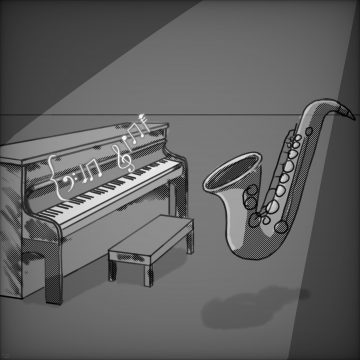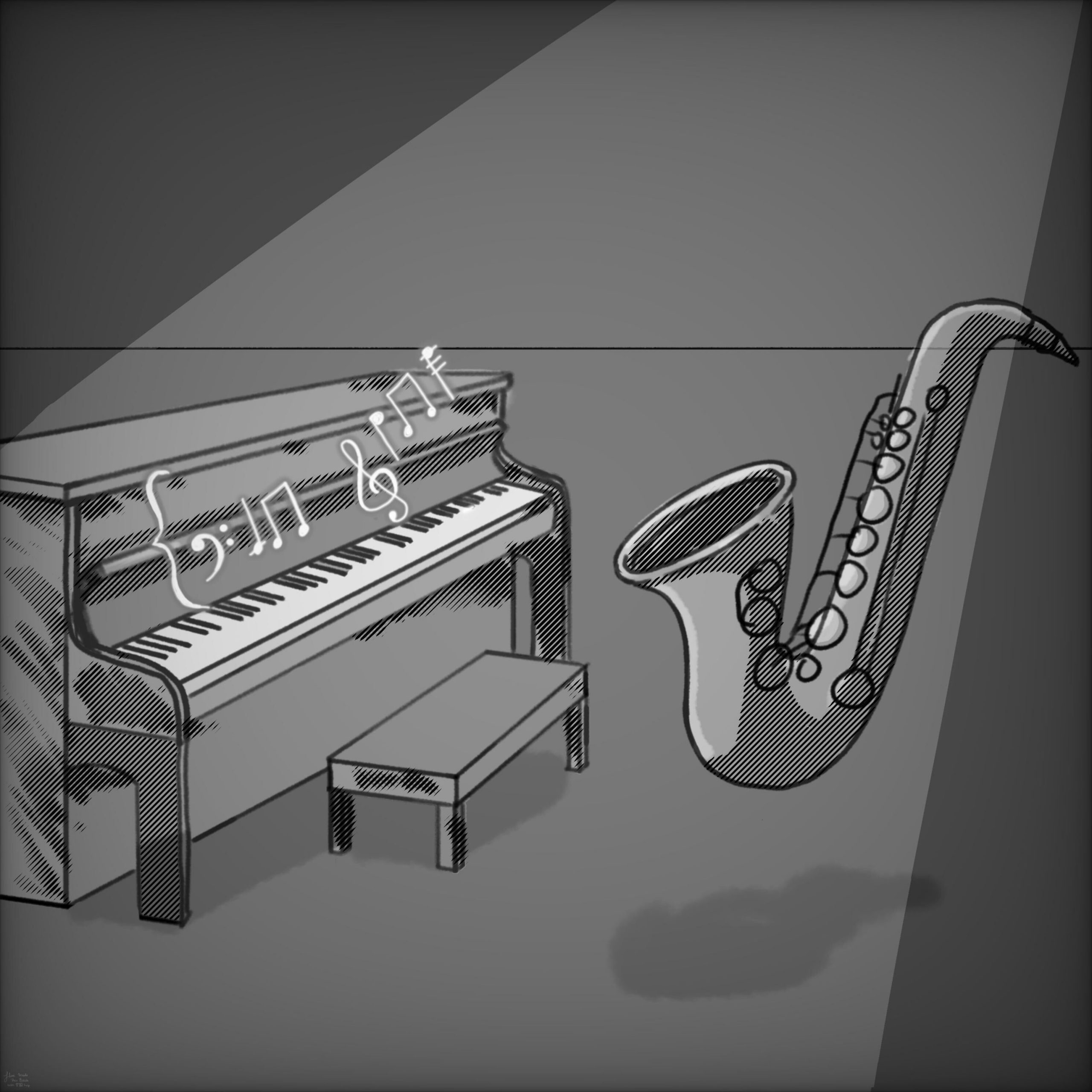The stage sparsely lit, two small lights, a saxophone and a piano. Last Wednesday, Feb. 7, saw an inspiring faculty recital in Harper Hall, featuring José Encarnación, the Associate Professor of Music and Director of Jazz Studies, alongside Bill Carrothers, a lecturer of music.
The recital, titled “Dancing in the Dark,” stood out through both its sublime performances and its start time: 10 p.m.
Encarnación entered with an airy and slow melody, which seemed too lyrical to be true. Underneath, Carrothers held a faster texture, but with an equal relaxation. After a few minutes, Encarnación paused to let Carrothers develop his material alone.
This was “You’ve Changed,” a tune by the Native American composer Carl Fischer. Mainly known for a handful of hit songs, Fischer also wrote the musical “Tecumseh!”, which is performed annually at Ohio’s Sugarloaf Mountain Amphitheatre.
“It’s a great set of lyrics,” said Carrothers.
The words were written by Bill Carey, a lyricist known for his frequent high-profile collaborations. Although the words were not sung here, they were made up for by Encarnación’s melodicism.
Next was Victor Young’s “Song of Deliliah.” This nostalgic tune featured expansive interpretation; Carrothers probably used the piano’s entire range in the first few minutes. Encarnación’s masterful air control allowed his sound to weave in and out with a delightful melancholy.
“It was a very popular tune in its day,” Carrothers said; “still is, as far as we’re concerned.”
“Killing words in that tune—great lyrics,” Carrothers said of their next song, Tadd Dameron’s “If You Could See Me Now.” Although there were still no words sung, this absence was filled by a remarkable musical expression.

Both players included gentle rhythmic accents in each phrase. This subtle effect kept the lines interesting and offered a characteristic groove throughout.
The fourth tune, unannounced, began with a memorable saxophone melody and simple piano accompaniment. The two gradually spun into more complexity, until Carrothers burst out with a speedy, bebop-like solo.
The audience gave shouts of approval, as Encarnación joined the fast texture. Despite this sudden speed, neither musician felt lost or out of sync.
For their final number, also unannounced, the duo played a woeful song. It properly evoked the night theme of their concert.
With a program just under 45 minutes, “Dancing in the Dark” offers an interesting formula for future performers. Given the concert’s late start time, it’s not surprising that the duo would want to keep the performance short.
As a compromise, the two seemed to have preferred longer songs; most tunes were around 7–9 minutes (although the second song was nearly 13 minutes). For longer concerts, a few short songs would be beneficial, but brevity was not needed here.
The “darkness” of the stage and subtle dances of each musician, the gentle rocking of Encarnación and the swaying of Carrothers lasted all night. Both musicians stuck true to their title.

